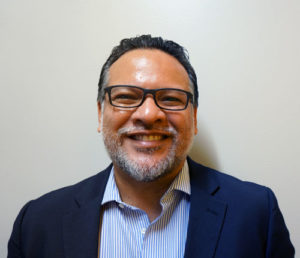Ipas’s Dr. Guillermo Ortiz says the health needs of women should come first
 A movement for safe, legal abortion in El Salvador has been building in recent years, and doctors like Ipas’s Dr. Guillermo Ortiz are also starting to speak out.
A movement for safe, legal abortion in El Salvador has been building in recent years, and doctors like Ipas’s Dr. Guillermo Ortiz are also starting to speak out.
As an OB-GYN who practiced for more than 20 years under the country’s total abortion ban, Ortiz has long seen the ban’s harmful impact on women’s lives and health. Among many heartrending cases he oversaw was that of Beatriz, a woman with life-threatening medical conditions who was denied an abortion by El Salvador’s Supreme Court and whose case galvanized an international outcry.
Ortiz has become a vocal advocate for women’s right to make their own reproductive health choices. In his role as senior medical advisor with Ipas, he’s supporting the recently formed Salvadoran Doctors’ Union for Women’s Health and Lives (Unión Médica Salvadoreña por la Salud y Vida de las Mujeres), which includes many of his former colleagues who are joining the call for repeal of the abortion ban.
“It’s important that doctors are involved in the movement to make abortion legal in this country because they see the impact and harm of the abortion ban firsthand,” he says. “They are the ones providing care to the poorest women, those most in need, who are also the women most likely to suffer harms to their health because of the law.”
Other advocates agree that doctors have an important role to play. “Their voices are vital in this movement because of their experience, the firsthand evidence they can provide, and because as doctors, their opinions are listened to and valued highly in society,” says Mayte Ochoa, a senior advisor with Ipas Central America who has also been supporting the work of the new doctors’ group.
Here Ortiz explains why he does this work:
Why did you choose to become a doctor?
Ortiz: Out of a desire to help those in need, and to be someone who eventually can make a difference between health and sickness, between life and death.
How did you become an advocate for the right to safe abortion?
I began seeing women who needed treatment for health problems during pregnancy, who needed a specific treatment that couldn’t be given due to questions of legality. I saw that the law affected their health outcomes—a law that denied abortion and didn’t respect their rights as women. As a result, I saw these women’s health deteriorate and some even died.
Why should abortion be made legal in El Salvador?
To protect the health and lives of women—especially the most vulnerable. I’ve always believed that laws should be made in accordance with the health needs of women.
For more information, contact [email protected]


